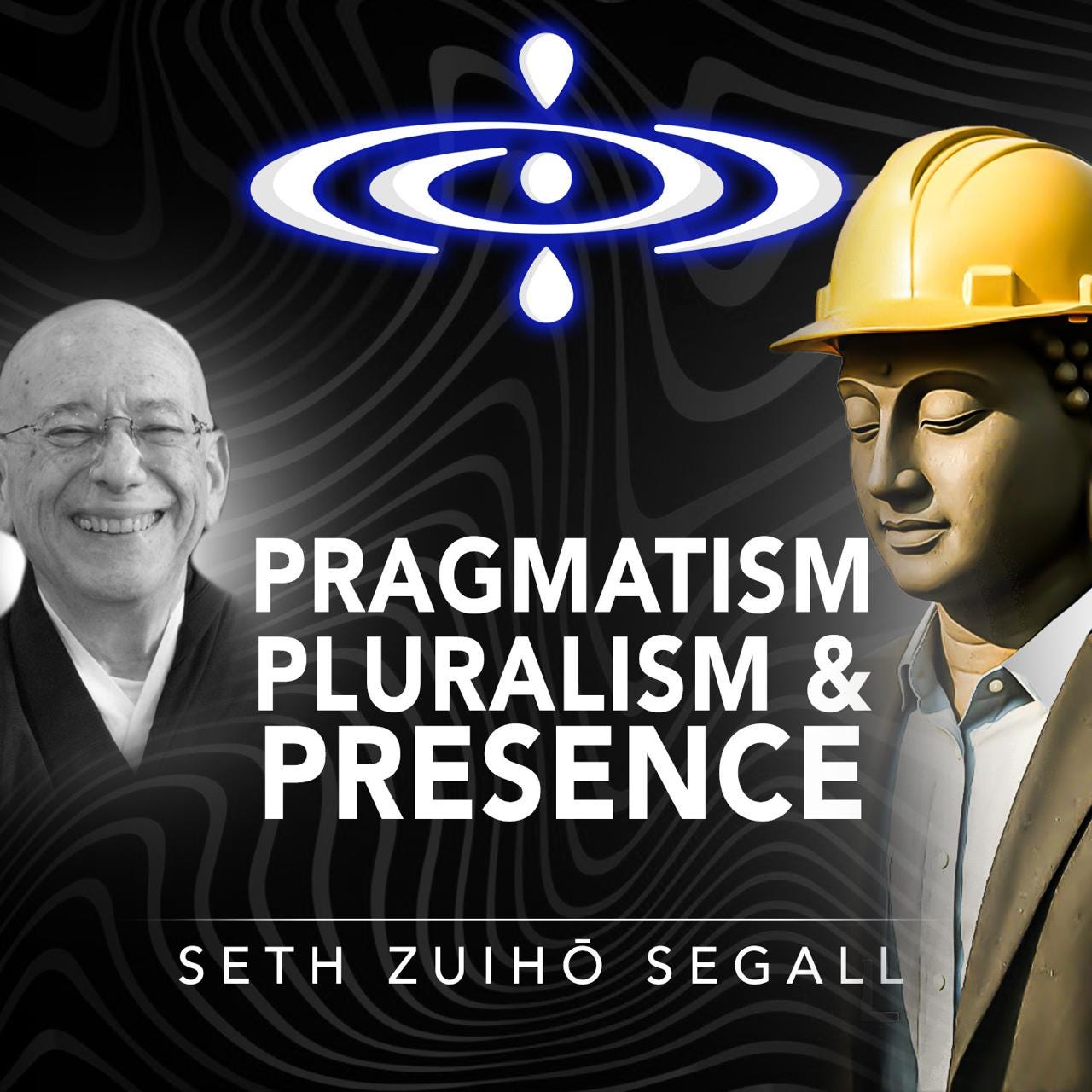🌀 Flourishing with a Buddhism That Actually Works in Real Life
Pragmatic Buddhism, the relationship between virtue, wisdom and pluralism, the foundations of flourishing, navigating political polarization, and better ways of thinking about enlightenment.
Over the last few years, I've been exploring what a life-affirming spirituality looks like in practice.
How can one live as a householder while still having genuine spiritual realizations?
And how might these insights contribute to creating a flourishing world?
I believe many listeners of my podcast grapple with these same questions, which is why I was delighted when a listener recommended I speak with Seth Zuihō Segall.
Seth is a Zen Buddhist priest, clinical psychologist, and writer who advocates for a pragmatic, naturalistic, eudaimonic, and cosmopolitan approach to Buddhism.
His perspective is informed by nearly three decades as an Assistant Clinical Professor at the Yale School of Medicine, over twenty years practicing and becoming ordained in the White Plum Zen Buddhist Lineage, and extensive work in chaplaincy.
He is also the author of several books, including his latest, “The House We Live,” which explores the commonalities underlying three classical approaches to virtue ethics—Aristotelean, Buddhist, and Confucian—to develop a flourishing-based ethics capable of addressing the problems of liberal democracies.
Click the video below to tune into our multifaceted conversation, where we speak about Seth’s unique journey into Buddhism as well as his pragmatic and naturalistic understanding of it, the relationship between virtue, wisdom and pluralism, the foundations of flourishing, navigating political polarization, ethical ideals and the myth of the perfect person, better ways of thinking about enlightenment and why Seth became a Zen priest.
Insightful Quotes 🗣️
Challenging Buddhist Beliefs:
“Could there be unicorns and gnomes and devas? Sure... But if I had to bet on whether anyone was going to find a unicorn or a deva, I would bet against it right now.”
“Every tenet in Buddhism has been challenged by some famous Buddhist teacher or philosopher or another sect at some point or another.”
On Flourishing & Enlightenment:
"I don't believe in perfect enlightenment. I do believe in something called flourishing, which is a translation of Aristotle's word eudaimonia. It means living the best possible life you can.”
"Instead of thinking about enlightenment as a permanent, absolute state that we can achieve, I think about it as a horizon we kind of aim at in some kind of way, and we may make some progress in that direction, but we never reach a complete state where we're now these masters of the universe.”
Limitations of Secularism:
"I found myself in love with the trees and the rocks and the clouds and everything. And there was a feeling that that love was coming back in some kind of way. And I was just in tears... that's, I don't know how that kind of fits in with a kind of a secular view of the universe. It hints at something beyond, you know, maybe what we already know scientifically about the world.”
On Politics & Spirituality:
"I think there's room in the world for both kinds of people. I mean, there are people who really should be meditating in a cave for 12 years, you know, and they're making their contributions to humanity in that way. And then there are other people who ought to be engaged in the political process. And a lot depends on your temperament and what you feel called to internally."
"We talk about engaged Buddhism when we talk about politically active Buddhism, but another friend of mine has written a couple of blog posts about disengaged Buddhism... Why can't there be all these voices? Like Mao said, let a thousand flowers bloom."
On Ethical Ideals & The Myth of the Perfect Person:
“It's not that every idol has feet of clay. It's that we're all a mixture of all kinds of tendencies, opposing tendencies. We may be inspiring in some ways and failures in other ways. That's just nature of human imperfection."
"Maybe one reason he [Martin Luther King Jr.] was such an advocate for nonviolence is he saw his own capacity for violence. And then he was trying to work with that in some creative way.”
Dive Deeper 🤿
To never miss future episodes make sure to subscribe to the "Elevating Consciousness" podcast on Apple, Spotify, or on most other podcast apps in which you can paste this RSS link.
You can also subscribe to the youtube channel if you prefer to watch.
Thanks for reading. If you enjoyed this read click the “subscribe now” button below to subscribe. If you're already a subscriber click the “share insighter” button to share with a friend or the “leave a comment” button to share some thoughts.




